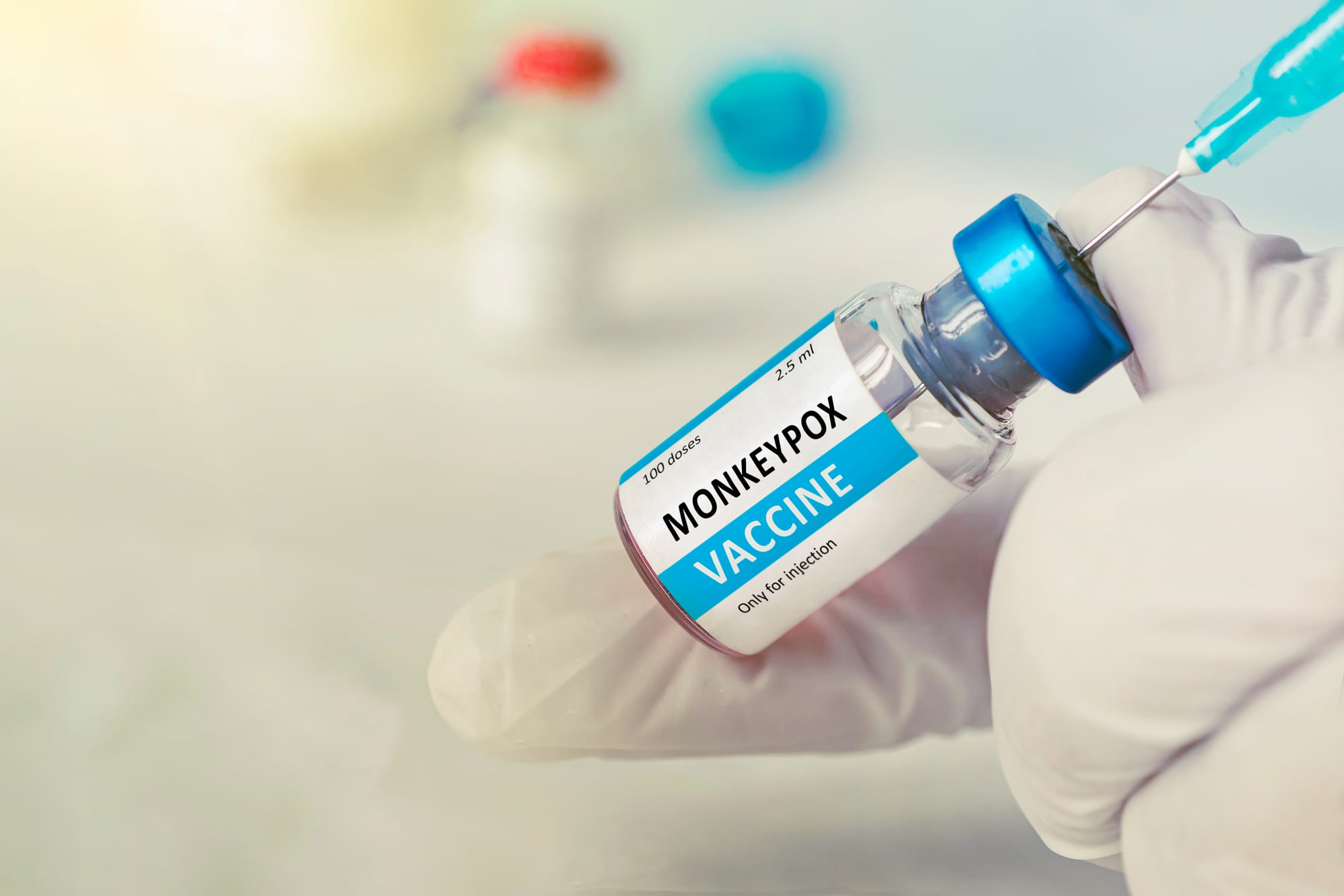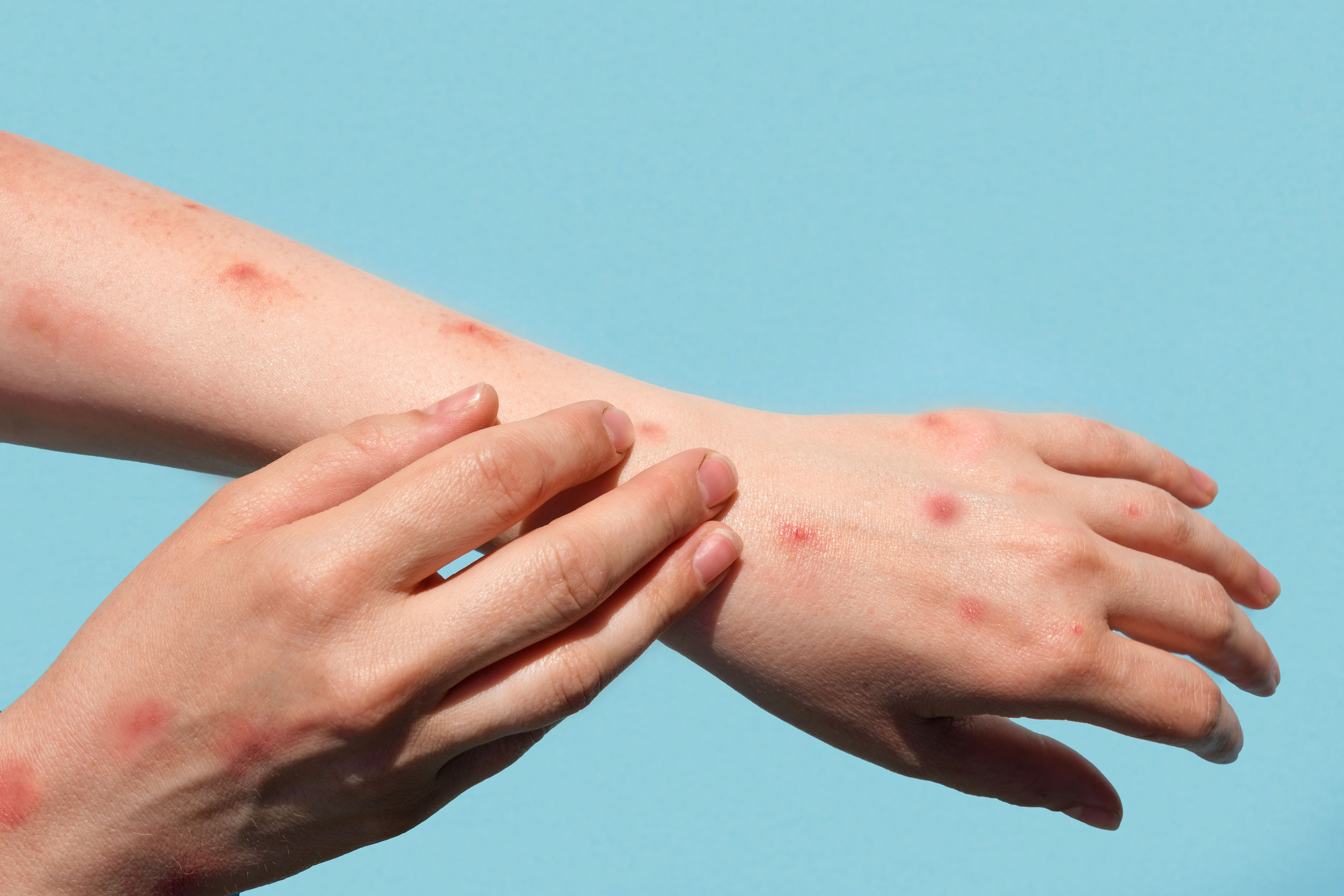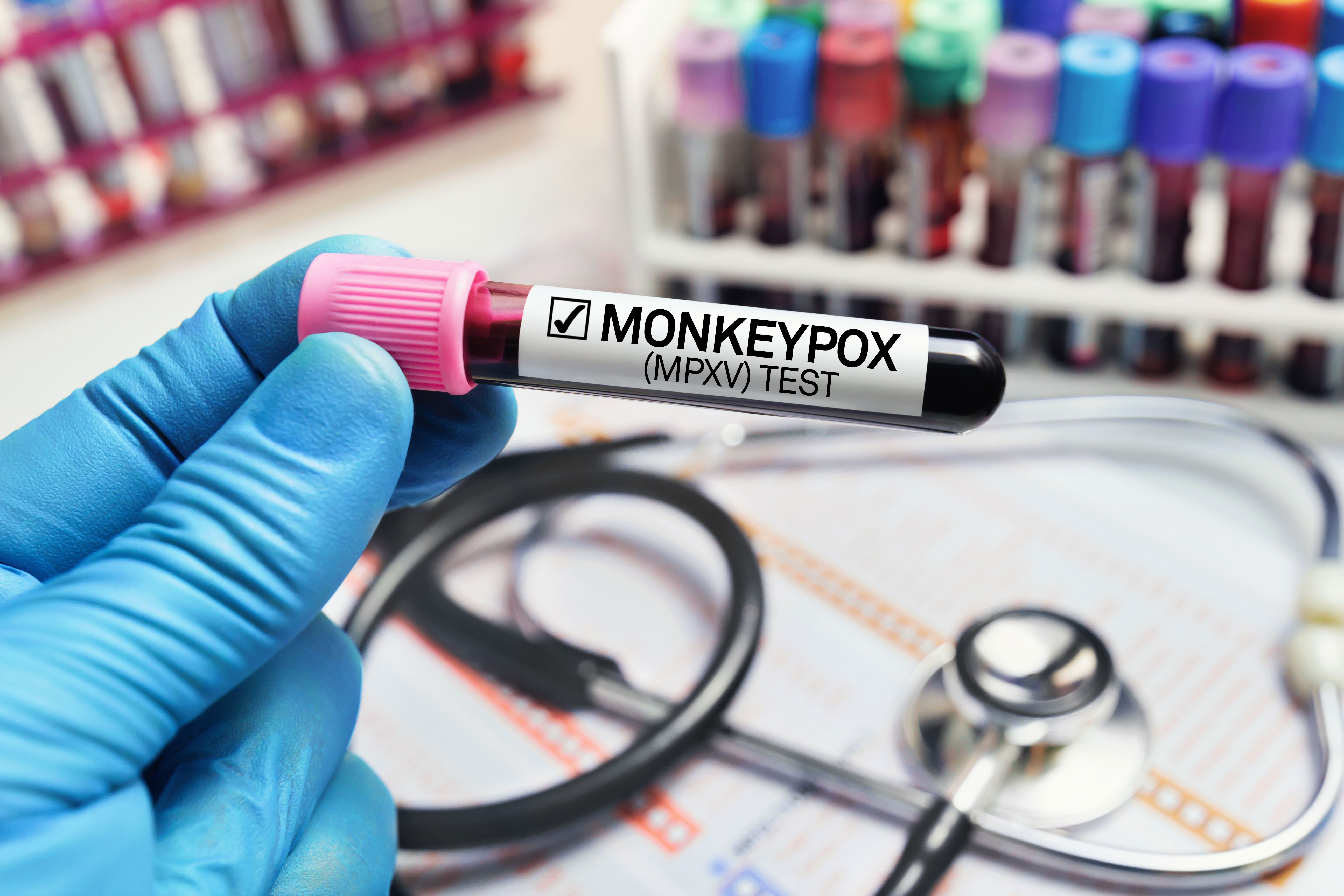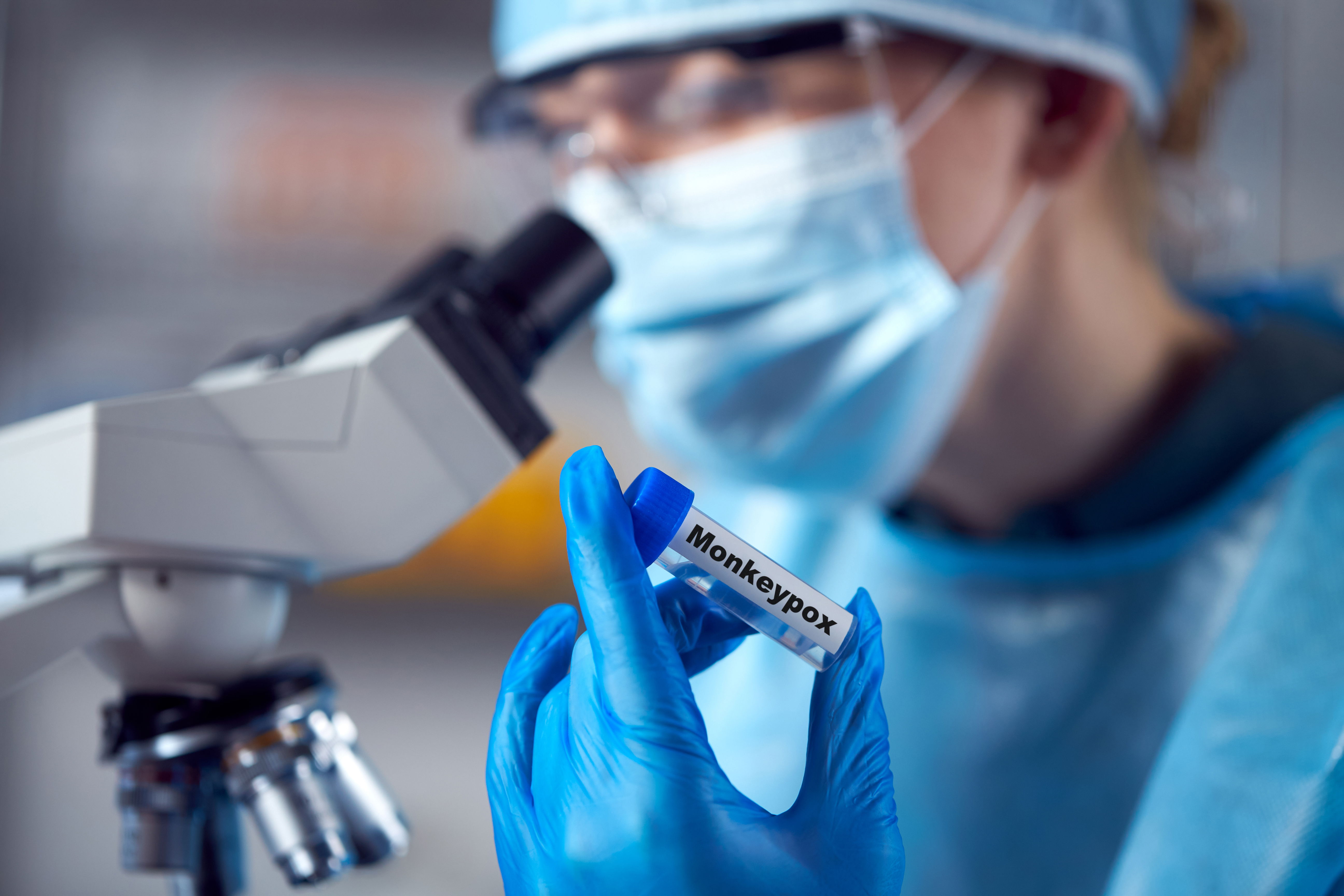Todo sobre la viruela del mono

Here's an overview of the monkeypox virus and outbreak:
What is Monkeypox?
Monkeypox is a viral zoonotic disease that is caused by the monkeypox virus. It is in the same family of viruses as smallpox, though it is typically less severe. Monkeypox was first discovered in 1958 in colonies of monkeys, hence the name. The first human case was recorded in 1970 in the Democratic Republic of Congo.
Symptoms
The main symptoms of monkeypox include:
FeverHeadache
Muscle aches
Backache
Swollen lymph nodes
Chills
Exhaustion
After the fever, a rash typically develops, often starting on the face, arms, and legs. The rash goes through different stages before forming a scab and falling off.
Transmission
Monkeypox spreads through close contact with an infected person or animal. This includes direct contact with skin lesions or body fluids, as well as respiratory droplets during prolonged face-to-face contact. It can also spread through contact with contaminated materials like clothing or bedding.
2022 Outbreak
In 2022
, monkeypox cases began spreading globally outside of its typical endemic regions in Central and West Africa. As of August 2023, over 80,000 cases have been reported in over 100 countries. This is the largest global outbreak of monkeypox ever recorded.
The outbreak has primarily affected men who have sex with men, though anyone can get monkeypox through close contact. Public health authorities are working to contain the spread through testing, contact tracing, and vaccination.
Treatment and Prevention
There are no specific treatments for monkeypox, but antivirals developed for smallpox can be used. Most cases resolve on their own within 2-4 weeks.
To prevent spread, public health measures include isolating those infected, identifying and monitoring close contacts, and using smallpox vaccines, which have been shown effective against monkeypox.
Practicing good hygiene and avoiding close, skin-to-skin contact can also help prevent transmission.

What are the long-term effects of monkeypox on health?
The long-term health effects of monkeypox are still being studied, as this is the largest global outbreak of the disease. However, here's what is known so far about potential long-term impacts:
Scarring and Disfigurement:
The monkeypox rash can lead to severe skin lesions that can cause scarring and pigmentation changes, especially if the lesions become infected.
Scarring is more likely to occur with more severe cases of the disease.
Facial scarring in particular can lead to disfigurement and social stigma.
Eye Complications:
Monkeypox can affect the eyes, leading to vision problems such as conjunctivitis, corneal inflammation, and even vision loss in severe cases.
These eye complications may persist long after the initial infection has resolved.
Post-Viral Fatigue:
Some patients report experiencing lingering fatigue and weakness for weeks or even months after their monkeypox infection.
This "post-viral fatigue" is similar to what is seen with other viral illnesses like COVID-19.
Neurological Impacts:
In rare cases, monkeypox has been associated with neurological complications such as encephalitis (brain inflammation) and acute disseminated encephalomyelitis.
These complications can potentially lead to long-term neurological deficits.
Emotional/Psychological Trauma:
The visible skin lesions and social stigma associated with monkeypox can take an emotional toll on patients.
Some may experience depression, anxiety, or PTSD related to their monkeypox experience.
It's important to note that most monkeypox cases are self-limiting and resolve within 2-4 weeks. Severe complications requiring hospitalization are less common.
Ongoing research will continue to shed light on the long-term health implications of this disease. Prompt treatment and managing complications are key to minimizing potential long-term effects.

How effective are the smallpox vaccines against monkeypox?
The smallpox vaccines have shown to be effective against monkeypox, although the level of protection may vary:
Traditional Smallpox Vaccines:
The older generation of smallpox vaccines, which contain live vaccinia virus, have demonstrated 85% or greater efficacy against monkeypox.
These traditional vaccines were used in the past to eradicate smallpox and have been repurposed for monkeypox.
However, the use of these live virus vaccines can come with a higher risk of adverse reactions.
Newer Generation Smallpox Vaccines:
More recently developed smallpox vaccines, such as JYNNEOS (also known as Imvamune or Imvanex), use a modified vaccinia Ankara (MVA) virus that does not replicate in human cells
.JYNNEOS has been found to be around 85% effective in preventing monkeypox infection.
These newer vaccines tend to have a better safety profile compared to the traditional smallpox vaccines.
Timing of Vaccination:
For maximum effectiveness, the smallpox vaccines should be administered before or shortly after exposure to monkeypox.
Studies have shown that the vaccines can provide some protection even when given a few days after exposure, but the earlier the vaccination, the better the outcome.
Vaccine Availability:
The global demand for smallpox vaccines has surged due to the 2022 monkeypox outbreak, leading to supply shortages in many countries.
Public health authorities are working to increase production and equitable distribution of the vaccines to areas most affected by the outbreak.
It's important to note that while the smallpox vaccines can provide good protection against monkeypox, they are not a perfect solution.
Continued public health measures, such as contact tracing, isolation, and education, are still crucial to controlling the spread of the disease. Ongoing research is also exploring the development of monkeypox-specific vaccines.

What measures are being taken to control the outbreak now?
Governments and public health authorities around the world have implemented a variety of measures to try to control the ongoing monkeypox outbreak.
Here are some of the key actions being taken:
Surveillance and Contact Tracing:
Increased surveillance and testing to rapidly identify new cases
.Thorough contact tracing to identify and monitor individuals
who may have been exposed.Isolation and monitoring of confirmed cases to prevent further spread.
Vaccination Strategies:
Prioritizing vaccination for high-risk groups, such as men who have sex with men.
Expanding access to smallpox vaccines, which have been shown effective against monkeypox.
Implementing "ring vaccination" strategies to vaccinate close contacts of cases.
Public Education and Awareness:
Launching public awareness campaigns to educate people about monkeypox symptoms, transmission, and prevention.
Providing guidance on how to identify potential cases and when to seek medical care.
Dispelling myths and reducing stigma associated with the outbreak.
Healthcare System Preparedness:
Training healthcare workers on monkeypox diagnosis, treatment, and infection control protocols.
Ensuring adequate supplies of personal protective equipment (PPE), testing kits, and antivirals.
Establishing specialized monkeypox treatment and isolation facilities.
International Coordination:
Sharing of epidemiological data, genomic sequencing, and best practices between countries.
Collaborating on the development and equitable distribution of vaccines and treatments.
Mobilizing resources and technical assistance to support outbreak response in low-resource regions.
Research and Development:
Accelerating research into monkeypox pathogenesis, transmission dynamics, and clinical management.
Exploring the potential for monkeypox-specific vaccines and treatments.
Improving diagnostic capabilities and increasing testing capacity.
These multi-faceted efforts aim to contain the current monkeypox outbreak, prevent further global spread, and lay the groundwork for better preparedness against future zoonotic disease outbreaks.
However, the success of these measures will depend on sustained commitment, coordination, and resources from the global community.
thanks
Comentarios